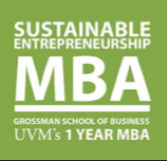In their book, Blue Ocean Strategy, Chan Kim and Renee Mauborgne, emphasize the strategic move (or initiative) as the key to innovation strategy, with the majority of corporate growth (and later, profits) coming from new strategic initiatives rather than from the continuing development and improvement of existing businesses.
Consistent with this view (and a previous piece, "The Folly of Corporate Sustainability Ratings"), I believe that refocusing attention on new, Transformational Strategic Initiatives holds the key to driving (and evaluating) corporate sustainability: Rather than chasing the fantasy of rating entire corporations as to their "sustainability" let us instead shift the "unit of analysis" and spend more time fostering new strategic initiatives within corporations focused on leapfrog, clean technology and disruptive new business models that serve and lift the poor.
While we will no longer be able to rely so heavily on secondary data and a consistent set of parameters (as we have increasingly with existing Sustainability Ratings), identifying and evaluating Transformational Sustainability Initiatives (both within existing companies, and as new ventures) is more consistent with our aim to recognize and reward what we aim to create--environmentally sustainable and inclusive business for the 21st century.

This is exactly the focus of our new Sustainable Entrepreneurship MBA (SEMBA) Program at the University of Vermont. SEMBA seeks to fundamentally reinvent business education and the MBA degree to address the daunting challenges we face in the 21st century--environment, climate change, poverty, inequality, ethics and entrepreneurship. Experience-based learning is a central component of the SEMBA curriculum, with the Practicum Project forming the backbone of the program.
The Practicum Project is a 3 month, full-time, hands-on experiential engagement with either existing companies or new ventures focused on launching transformational sustainability initiatives. I briefly describe below a few of the transformational Practicum Projects that form the backbone of the SEMBA program.
Initiative: Terragraph Business Model

Facebook Connectivity Lab's mission is to do the fundamental research to connect the 4.2 billion people who are without access to the Internet or underserved with limited connections to the Internet. Using new technologies built by Facebook's Connectivity Lab, the company seeks to leapfrog traditional methods for connectivity and offer disruptive, innovative projects to connect the "last mile."
The SEMBA practicum project will work with the Facebook team on project Terragraph; one of the Connectivity Lab's terrestrial internet solutions. The focus of the project will be on exploring the ecosystem in dense urban slums in India to better understand the value proposition of Terragraph technology. SEMBA students will be conducting on the ground interviews to uncover challenges and solutions associated with the use and implementation of the technology. These findings will assist Facebook in determining a viable business model for project Terragraph in India ad a framework for the rest of the world. The goal of the project overall is to create mutual value for businesses and the communities they operate in, creating a truly sustainable venture.
Initiative: Affordable & Sustainable Portfolio for the Underserved

Low income consumers are greatly underserved in the green products marketplace. Due to the current reality of higher costs in development, sourcing materials, production and compliance, green products cost more than conventional products of similar efficacy. As a result, many families cannot afford high quality green products. As a mission-driven company, Seventh Generation believes that everyone should be able to clean safely, sustainably and effectively.
The request to the SEMBA team is to develop a comprehensive go to market and long-term strategy to address the clothes laundering or other household cleaning needs of low income communities in an affordable and environmentally sustainable way. The team will identify options for new products or services and business models. The team will focus on understanding the target consumers' preferences and cleaning habits, identifying barriers to use of green products by these consumers, defining attributes that will appeal to the target consumer, and developing a value proposition uniquely suited to low income consumers while avoiding cannibalization of current products.
Initiative: Hydraid Business for Base of the Pyramid in Africa

NativeEnergy recently acquired the Hydraid® Biosand water filter technology to supply its Help Build™ clean water programs in developing countries. Utilizing NativeEnergy's impact investment model to seed-fund initial placement of filters could provide a powerful boost to establishing a profitable business that helps to meet the critical need for safe drinking water.
The SEMBA project team will assess the potential for a water filter business and create a business plan for a venture to support under-served, low-income populations in one or more countries. The team will utilize prior research conducted by TripleQuest and NativeEnergy on filter technologies and current experience across projects that were funded by NativeEnergy to install these filters in Ghana, Kenya, Ethiopia, India, Honduras, and Haiti. The SEMBA team and their findings will be central to NativeEnergy's strategy on investing in the Hydraid® Biosand business.
Initiative: China Recyling Strategy

With Novelis' global recycling footprint, we want to have the capabilities to take and process scrap from anywhere. Novelis has built an automotive finishing plant in China, but with rising volumes of aluminum scrap in China due to a growing middle-class and increasing levels of consumption, it seems like an obvious move for Novelis to next put a recycling center there.
But there is an effective export ban on scrap leaving China and perhaps a very difficult scrap market to break into with many challenges. How can Novelis develop a strategy to purchase and reprocess scrap from China? What should be the immediate next steps to move the company forward toward a long-term, sustainable strategy for closed loop aluminum in China? What are the risks? How can they be dealt with? This project would require a few meetings in Atlanta and trip(s) to China.
Initiative: Sustainable Entrepreneurship in Latin America

An initiative has been launched to assess Pepsico's capabilities and readiness undertake Base of the Pyramid (BoP) business development. The next step will be to launch an actual sustainable entreprneurship initiative to develop a new venture in Latin America focused on the underserved.
This effort is focused on the creation and development of a new business focused on affordable nutrition, starting in Latin America. The practicum project will engage students in the process of co-creating the value proposition and business model for a new venture in Latin America focused on the BoP. It will involve travel to both Latin America and Miami.
Join us to help spawn the Transformational Sustainability Initiatives that will move us toward a more sustainable world in the years ahead.
For more information about this completely new and redesigned MBA program, visit SEMBA >>